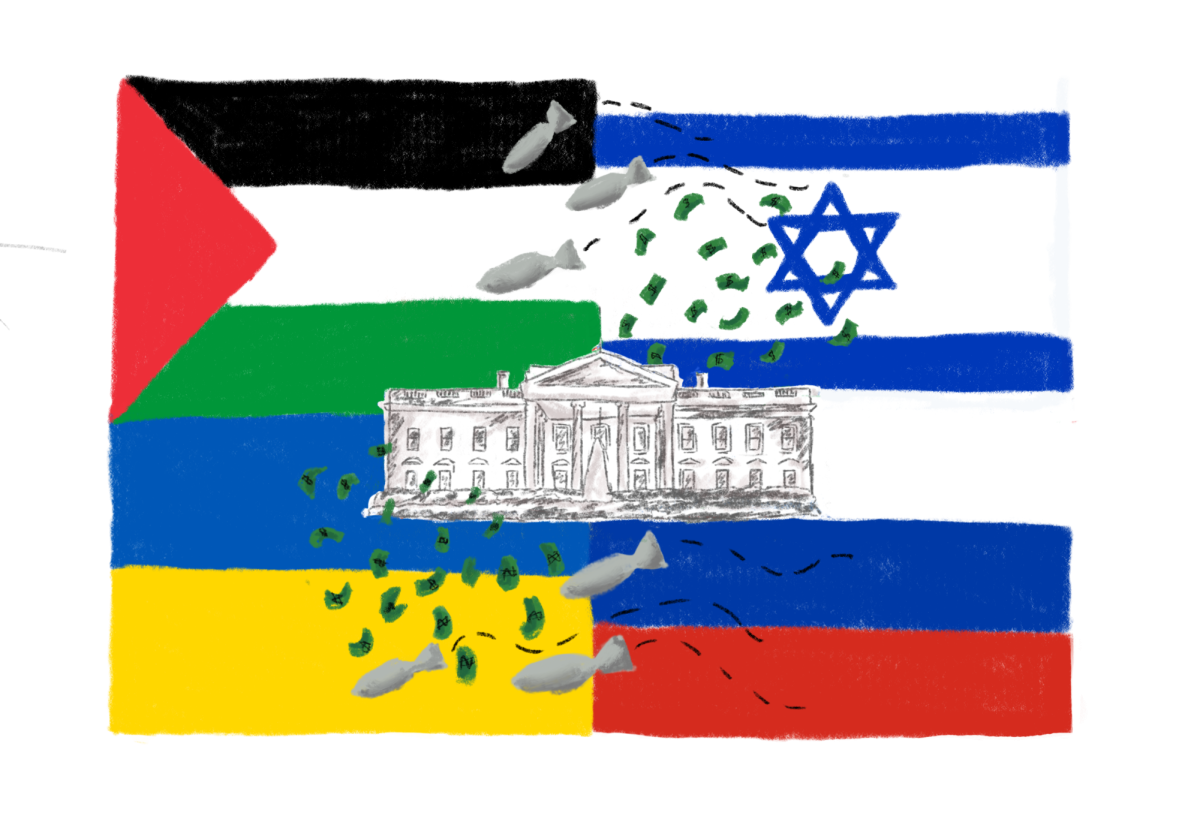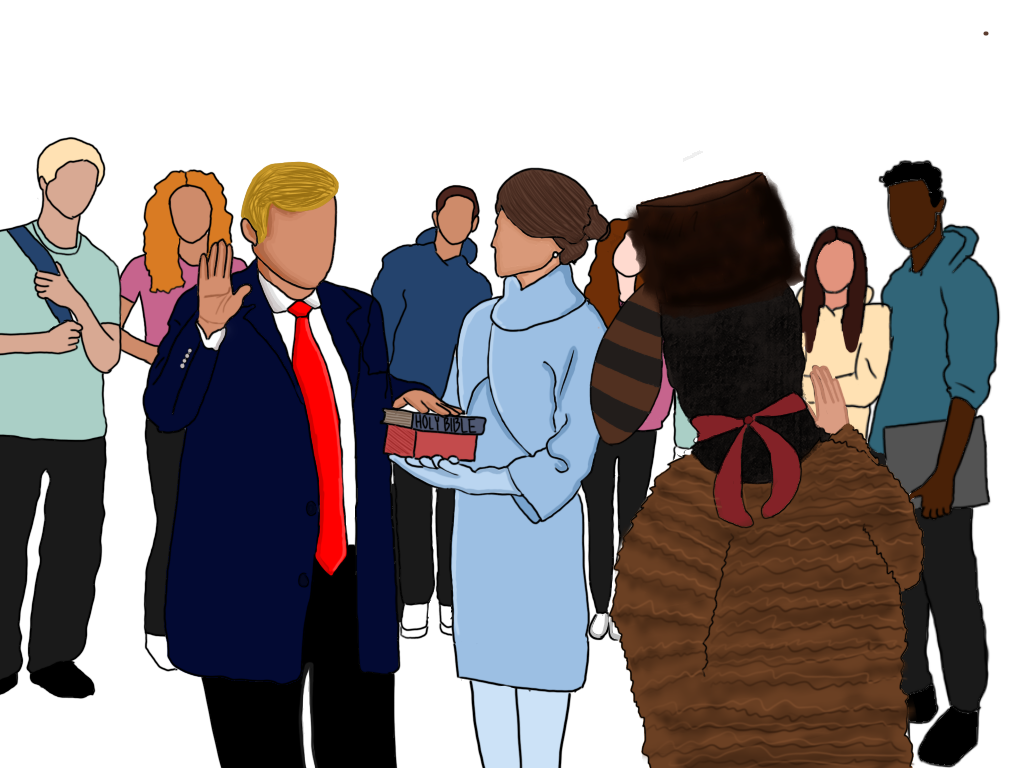Chest pain versus a heart attack. A rear ending versus a car crash. The sniffles versus mono. The words people use are very influential to how a topic will be perceived. Many refer to Israel versus Palestine as a conflict, but they refer to Russia versus Ukraine as a war. The word conflict is broad and unofficial, which conveys the idea of unseriousness. The word war is official and severe, and many people connect their own experiences of war to this idea. Using different words is inherently unequal and provides readers with different connotations for each event. Referring to both events using the same word creates an equal base for people to form their opinions around.
The Israeli Palestinian conflict began almost a century ago after the United Nations split Palestinian territory into two parts: one Jewish and one Arab. Most conflicts between Israelis and Palestians come from fighting over the land from the Jordan River to the Mediterranean Sea, otherwise known as the Holy Land. The most recent issues began on Oct. 7 when Hamas (Palestine’s leading political party) fired an attack on Israel killing 1,200 Israelis. Israel retaliated by launching a counter strike that aims to end Hamas rule in Gaza. Though being Palestines leading political party, Hamas is a terrorist group that many Palestinians do not support, despite this disagreement those same Palestinens are being killed by Israel. This cycle of violence continues today. Sama Tarroum, freshman, is Palestinian-American, who does not agree with Israel’s position in the war,
“What Israel is doing everyday is disgusting. [Israeli] pain is always sympathized with while Palestinian pain is ignored.”
Tarroum believes that Palestinian pain is overlooked while Israeli pain is exemplified. This relates to what America is doing for each country and how American citizens talk about each country’s role in the conflict.
North of Israel and Palestine another conflict is occurring between Ukraine and Russia. The modern Russian Ukrainian conflict started after Ukraine declared independence in 1991 shortly before the Soviet Union fell. As Ukraine explored its newfound independence, the country was caught between eurocentric ideals and Russian ideals. This combined with the cost of wars and loss of trade led to Ukraines unreliable government and economy. The most recent conflict began on Feb. 24, 2022, when Russia invaded Ukraine. Since then a constant battle between Russia and Ukraine has occurred. Ukraine fights for their independence, Russia fights for dominance. Luca Arotomov, freshman, is Russian-Tarttarian-American but he does not support Russia in this conflict.
“Even though I’m Russian, I fully support Ukraine,” Arotomov said. “The Russian government doesn’t necessarily reflect what the Russian people think.”
Though many Russians disagree with their government, many are forced to fight. While Ukrainian people proudly serve their country because of their deep belief in their cause: freedom.
The U.S. has interfered in both foreign conflicts, supporting Israel and Ukraine. Biden has aided both countries by providing weaponry, special operation forces/military and various defense materials. America has spent $17.9 billion on aiding Israel in exactly a year and roughly $61.3 billion on Ukraine since 2022. Tarroum believes that getting involved in foreign affairs when the U.S. has many of its own problems is unwise. Instead she believes that America should focus the money on domestic issues.
“Donating billions of tax dollars to Israel every year [isn’t] good because we could use that money to solve a lot of issues that we have here in America. They’re also getting involved in a genocide.”
Tarroum believes that Israel’s attacks on Gaza aim to eradicate the Palestinian people. Instead of supporting this Tarroum thinks that the U.S. should instead use their money to solve problems within the U.S.
Arotomov has a similar belief to Tarroum, though to him the context of how America helps both countries is important. He also believes that the restrictions each country has on financial aid is essential to understanding the differences between the two conflicts.
“There’s a big difference. With the Israeli/Palestinian war, Americans are giving Israel weapons and saying, ‘do whatever you want with them,’ they’re even shelling (the heavy fire of weapons over a broad area) normal people,” said Arotomov. “But then in Ukraine they can only shell other Ukrainian territory; they can’t strike deep into Russia because America bans them from doing that.”
As a result of America’s connection to NATO they ban Ukraine from striking deep into Russia. This is because NATO serves to protect the world from conflict and they believe that bombing the civilians of Russia could lead to a catastrophic conflict; a world wide nuclear war.
As the presidential election approaches in America, many groups feel like the candidates do not represent their needs. This includes economic, social, and in Tarroum’s case humanitarian. Tarroum’s believes that the current presidential candidates give the people of America no good option,
“It gives us no president that can provide security for Palestinians in the U.S. and in Palestine,” said Tarroum, “I definitely don’t like it at all.”
This is in relation to both candidates’ pro-Israeli policies. If elected both candidates have stated that they plan to give Israel more financial aid.
Political ideologies influence what policies are important to American voters. For this reason Arotomov has similar beliefs to Tarroum though for different reasons, “I do not like any American presidential candidate being close friends with Putin, because Putin is an evil war criminal,” referring to Trump’s kinship with the Russian leader. Arotomov said that Trump or any political candidate should cut social ties with the Russian leader.










